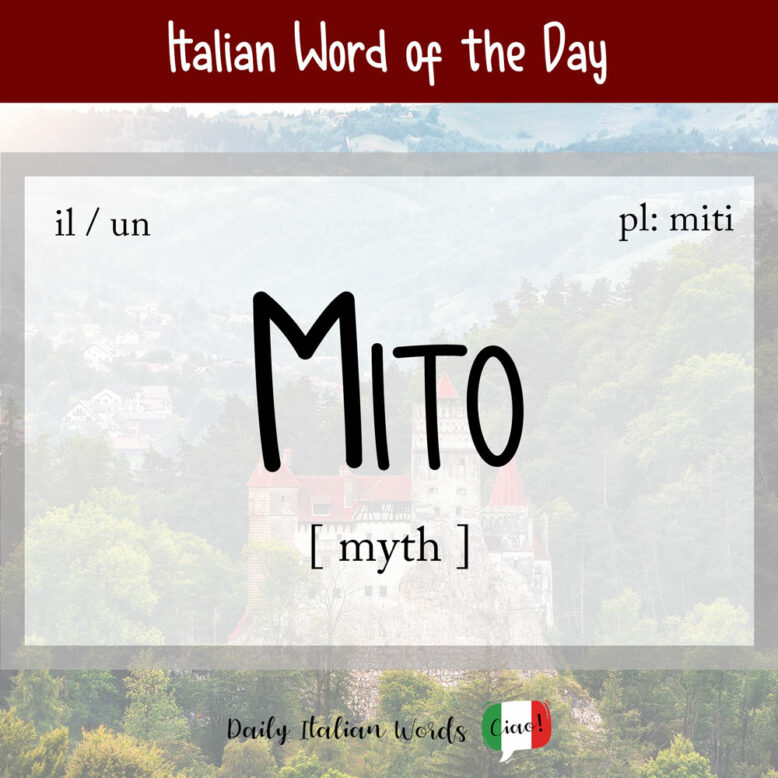The word for myth in Italian is mito (masculine, plural: miti). The origin of both words can be traced back to the Greek muthos meaning narrative or something said.

As in English, mito generally refers to either:
a) a traditional story, typically involving supernatural beings and events, concerning the early history of people or explaining a natural or social phenomenon
I miti greci sono tra le storie più antiche del mondo.
Greek myths are among the oldest stories in the world.

b) something thought, believed or imagined, without any real foundation in reality
Secondo alcuni neuroscienziati, l’idea che il cervello di uomini e donne debba avere caratteristiche diverse è soltanto un mito.
According to some neuroscientists, the idea of the brain of men and women having different characteristics is a myth.
In this second sense, it can also denote an exaggerated or idealised conception of a person or thing (e.g. il mito di Cesare = the myth of Caesar).
Another possible translation is a dream or illusion thought to be unattainable such as il mito della pace nel mondo (the dream of world peace).
Some verbs you’ll often see used with mito include sfatare un mito (to dispel a myth) and diventare un mito (to become a myth).
Then we have a typical Italian expression: mi è crollato un mito! (lit. a myth has collapsed to me). There is no direct English translation. It is used in situations where you learn something shocking about someone or something, causing you to lose faith.
Ho saputo che Babbo Natale non esiste. Mi è crollato un mito!
I found out that Santa Claus doesn’t exist. My world has collapsed!
In colloquial Italian, you’ll often hear people calling one another mito as a compliment. In this sense, it means cool, legend or fantastic person. Note that the gender of mito doesn’t change if you are addressing a female (i.e. mito does not become mita).
Il tuo gol ha deciso la partita! Complimenti, sei un mito!
Your goal was decisive for the game. Great job, you are a legend!

A few terms that are etymologically related to mito include:
- mitico = mythical, legendary
- mitologia = mythology
- mitizzare = to idolise
- mitizzazione = mythologising
Heather Broster is a graduate with honours in linguistics from the University of Western Ontario. She is an aspiring polyglot, proficient in English and Italian, as well as Japanese, Welsh, and French to varying degrees of fluency. Originally from Toronto, Heather has resided in various countries, notably Italy for a period of six years. Her primary focus lies in the fields of language acquisition, education, and bilingual instruction.


